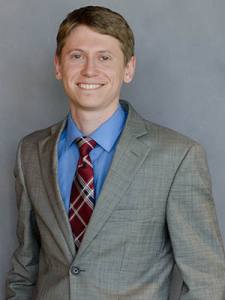Most council members had filed out of the chamber shortly after a recent Allen City Council meeting where the council approved a new five-story office building and green-lighted several new business plans.
Mayor Steve Terrell remained, taking a seat in a nearby conference room to reflect on how much the city has changed since the owner of a dry-cleaning business first ran for a City Council seat in the early 1990s.
“There was no economic development—it was a bedroom community,” said Terrell, 61. “I just felt like we needed to put an economic base into Allen, and that’s kind of why I ran.”
Growing up in the Lake Highlands area of Dallas, Terrell would travel through Allen to visit family when the area was a more of a rural frontier than the bustling suburb it is today.
“Used to, you’d drive around [to visit] my mother’s side or my dad’s side, and you’d go by someone’s farm,” Terrell said. “Now those farms are all houses and businesses.”
The city’s transition from mostly residential development to a mix of retail and business did not happen overnight. When Terrell moved to Allen in the 1980s, he said, the city was only beginning to consider diversification. The city surveyed residents in 1984 and compiled their priorities into a comprehensive plan that prioritized retail, restaurant and office space.
Although the city has periodically updated its strategic plan in the years since, Terrell said the city’s vision from the 1980s remains fundamentally unchanged. Terrell said he tries to stick closely to that original vision for development.
Since Terrell was first appointed mayor in 1997 to fill a mayoral vacancy, the city population has nearly tripled. Today, the city is home to Allen Premium Outlets, The Village at Allen, Allen Event Center and Watters Creek developments, along with an increasing number of office buildings.
Even though council members have come and gone, the council’s commitment to diverse development has been consistent, Terrell said.
“What’s neat about Allen is most of the councils that I’ve had the pleasure to serve with, they’ve always been progressive,” he said. “They’ve always had Allen first. It was always about Allen and how can we better serve the people.”
Part of the strategic planning process involves outlining where certain developments will be located after a residential neighborhood is built out. And soon, Terrell said, city officials expect to see more development extend to the SH 121 corridor.
“That’s going to be our next commercial frontier, and we reserved it for that, too,” Terrell said. “We always kind of saved that for—I wouldn’t say our last frontier, but it’s become our last frontier.”
Terrell said he focuses more on the city’s future than on how radically it has changed during his tenure.
“When I look at that, I go, ‘Wow,’ you know?” Terrell said. “It’s funny. I don’t sit and think about stuff like this a lot of times. I guess I should.”





